The Wild Pear Tree
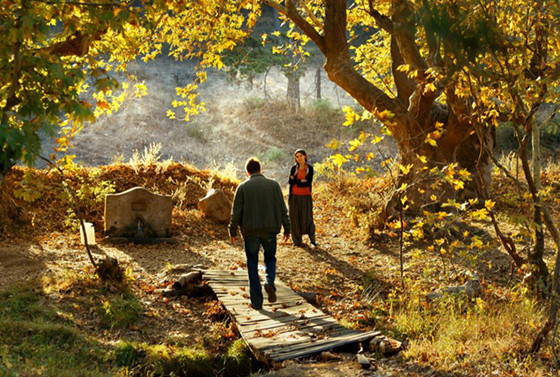
Adored Turkish master Nuri Bilge Ceylan’s profound and funny meditation on the creative life, The Wild Pear Tree, is easily his most accessible film yet.
Wannabe writer Sinan (Aydin Doğu Demirkol) moves between his quaint home village and the bustling coastal tourist city of Çanakkale, in a comfortable rut. He has a “quirky meta novel” that he should be promoting, but at the same time he’s drawn to the village of his birth and a teaching position there, a job his admired father (Murat Cemcir) held and excelled at.
Sinan discovers that his father isn’t what he seems: he has a serious gambling addiction and the family now stands at the precipice of financial ruin. Combined with Sinan’s other discovery that an old beloved flame is soon to wed, he’s at a crossroads with irreversible consequences.
Abound with metaphors, The Wild Pear Tree is a lyrically beautiful experience. Rarely has the bucolic beauty of glowing forests and rolling hills revealed such seeming everyday magic.
Booksmart
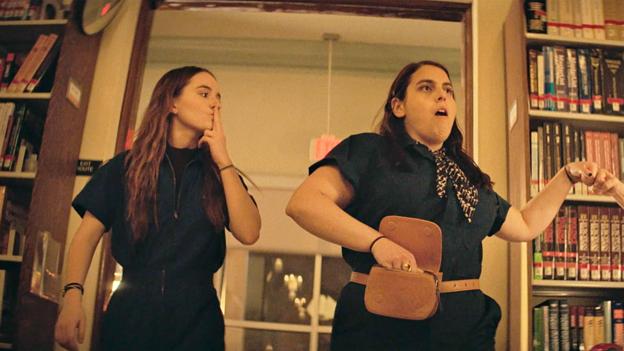
This clever coming-of-age comedy, the directorial debut of Olivia Wilde, wins you over with its easy charms, and also introduces a winning comedy duo in charismatic leads Kaitlyn Dever and Beanie Feldstein.
As affable but nerdy high school overachieving BFFs, Amy (Dever) and Molly (Feldstein) have spent their formative years with their noses buried in books, working hard to get into the best schools, they suddenly realize the folly of their ways. On the eve of graduation they realize they’ve missed out on the best parts of adolescence; dating, partying, cutting loose, et cetera. With time running out, Amy and Molly embark on a chaotic misadventure to make up for lost time.
Working from a clever screenplay by Emily Halpern, Sarah Haskins, Susanna Fogel, and Katie Silberman, Booksmart is a quickly-paced, consistently funny, and endearing teen comedy that doubles as one of 2019’s most bracing buddy movies.
High Life
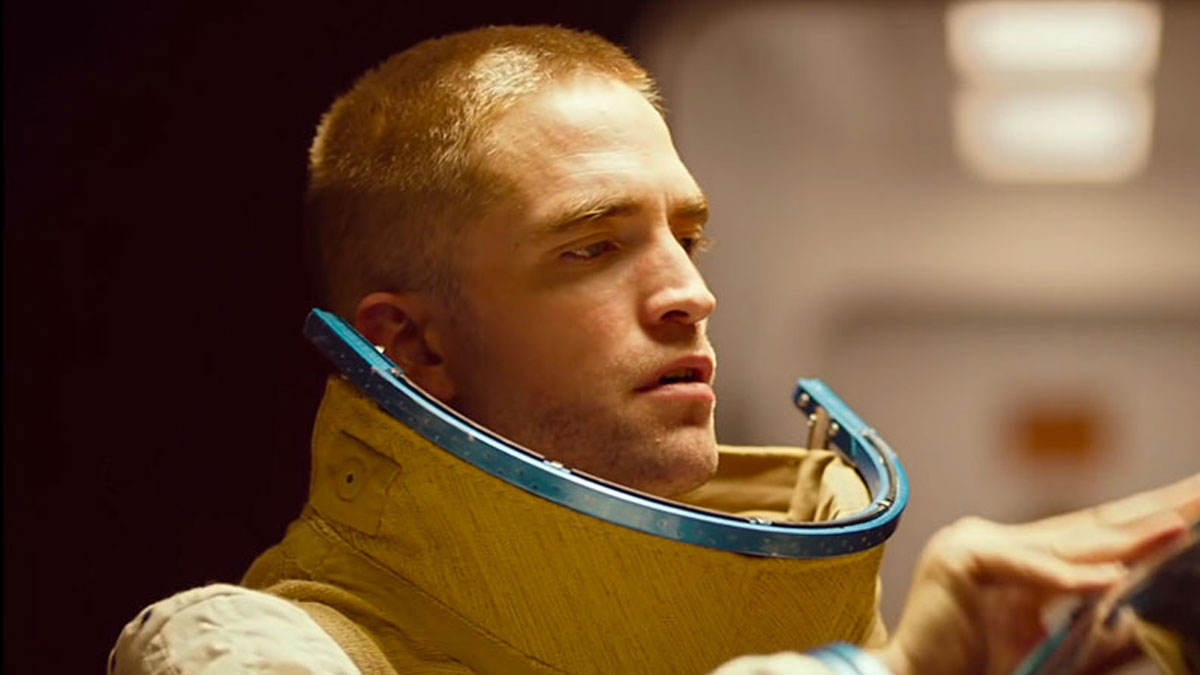
Who but French filmmaker Claire Denis could conjure up a space odyssey centered on a crew of doomed astronauts travelling millions of miles from Earth into a black hole that alternates between the serene and sensual as much as it does with eerie beauty and startling brutality?
Atypical of Denis, High Life spells out almost nothing explicitly in an elliptical tale about a reformed murderer named Monte (Robert Pattinson) who winds up raising a daughter (Scarlett Lindsey) aboard a spacecraft drifting on the edge of oblivion.
Some influences are apparent; the psychedelic headiness of Kubrick’s 2001, the twin sci-fi crescendos of Tarkovsky’s Solaris and Stalker, and Douglas Trumbull’s eco-obsessed Silent Running. But how Denis reconfigures these recognizable motifs is where her mastery soars.
High Life is a hauntingly refined work, stunningly textured, and while ominous and nasty at times, there are still romantic rhythms and other humanistic complexities captured onscreen. Denis has devised an original sci-fi tale that’s lyrical, even when tenderness becomes terror-filled. And while it won’t win her more fans, those already attuned to her connotative charms will be enraptured and amazed.
Ash is Purest White
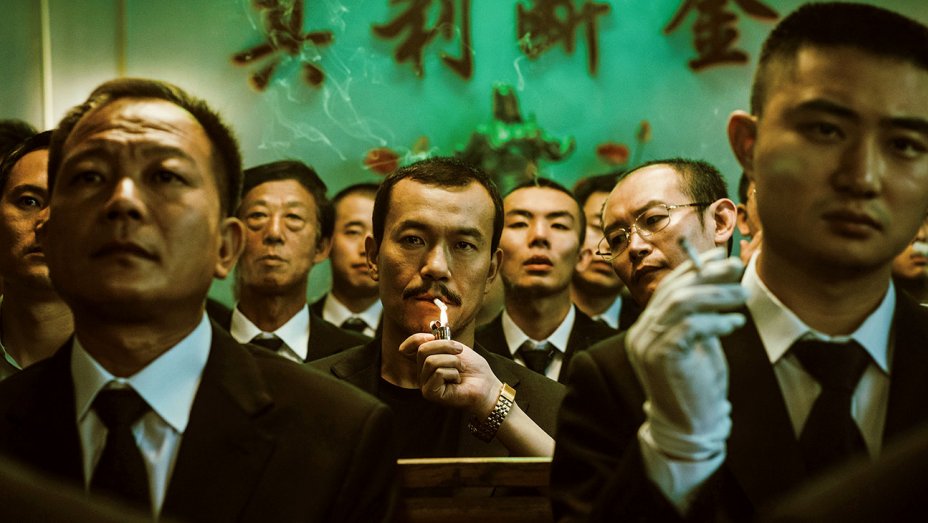
A towering figure in international filmmaking, Jia Zhangke last rocked audiences with 2013’s staggering A Touch of Sin, and his latest, the poetically titled Ash is Purest White, finally got its North American release earlier this year.
Re-teaming with his muse Zhao Tao (together they are arguably one of the greatest husband-and-wife collaborative teams in cinema history), the film begins in 2001 as our heroine gets into it with her gangster boyfriend Bin (Liao Fan), whom she ultimately goes to prison for, thus embarking on a troubling path that takes us to the present day.
Working with expert cinematographer Eric Gautier, the bold uses of color and rich visual textures make for one of 2019’s most gorgeous filmic experiences.
Powerful, brimming with thought-provoking sexual politics, and powerhouse performances, Ash is Purest White is a heart-shattering stunner.
Knife+Heart
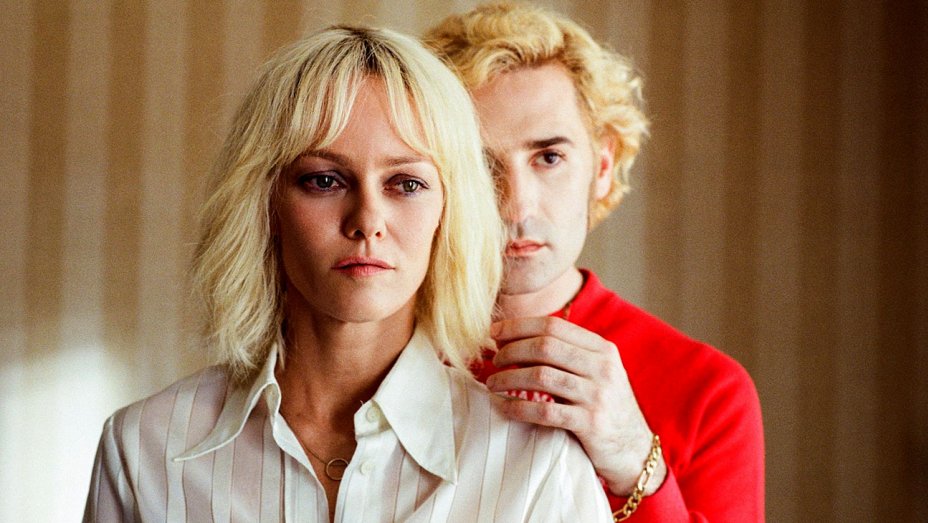
Part parody, part homage, this beautiful film from Yann Gonzalez is a meticulously crafted nightmare. Set in a neon-lit Paris in 1979, the city thrums with disco and electronica (the score by M83 gets my vote for best soundtrack of the year!) as Anne Parèze (Vanessa Paradis), an agitated and obsessed gay porn producer pines to infuse meaning into her work, and also pines for her ex, Lois (Kate Moran). But it’s not in the cards for Anne when a masked murderer goes after her repertoire company in a very grisly fashion.
The giallo-influence saturates every frame, elegantly shot on 35mm by Simon Beaufils, this is a super-stylish and lurid celebration of both the erotic and horrific.
Cinephiles will also appreciate the nods to Michael Powell’s Peeping Tom, De Palma classics like Phantom of the Paradise and Body Double, Friedkin’s Cruising, and Todd Haynes’ Poison. Gonzalez’s attention to detail, both visual and sonically, gives this disco-dyed, erotically-charged horror-thriller sweetmeat all it needs to make it one of 2019’s standouts.
Birds of Passage

Ciro Guerra and Cristina Gallego’s re-working of the family crime saga spans 12 years from 1968 to 1980 as we intimately connect with a family of indigenous Wayuu people who grow more and more involved with the Colombian drug trade and the inevitable violence that follows.
Living steadfast with their own ideas of honor and traditions, the Wayuu are wary of outsiders until a young Wayuu man named Rapayet (José Acosta) is set to marry into a family dominated by the matriarchal Ursula (Carmiña Martínez) and starts large-scale marijuana dealing. What starts as easy money, managed by the increasingly ruthless Ursula, gets everyone involved into a darkening world dominated by violence.
Told in five chapters, and replete with authentic Wayuu costumes and traditions, Guerra and Gallego’s taut, textured, and endlessly fascinating drama is an impressive crime story different from anything you’ve ever seen before.
Dragged Across Concrete
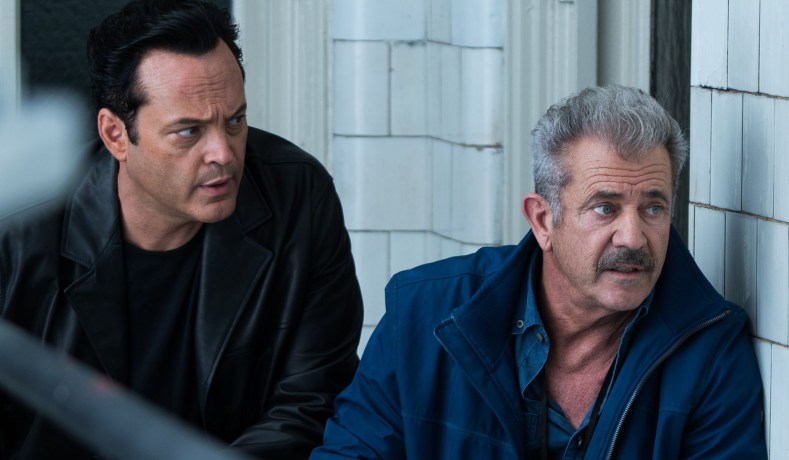
Fans of writer-director S. Craig Zahler, the deranged genius behind Bone Tomahawk and Brawl in Cell Block 99, get more of that grim, gruesome, slow-burning excitation with his neo-noir mini-crime epic Dragged Across Concrete.
A verbose and violent potboiler, Zahler melds an Elmore Leonard-like scheme with a David Mamet-style talky-script that doesn’t need to pack a high-speed wallop when it better builds itself as a brave, idly-building journey into extinction.
The desolate characters populating this neo-exploitation elegy aren’t all meant to make it to the finish line and it a;; begins as two bigoted cops, Brett (Mel Gibson) and Anthony (Vince Vaughn) find themselves in hotwater after video footage of their strongarm tactics go viral and they’re suspended from the force. Soon these complicated characters descend like Dante into the underworld, questing for criminals to bully and gold brick. Their expedition is entwined with other wayward journeymen and women as the movie moves with hypnotic reluctance, eventually arriving at a fuming, gale force finish.
A fucked-up film about ruthless men on both sides of the law, Zahler invites the patient to be swept up in smart dialogue, pulpy predicaments, and masochistic pleasures of reparation and poetic credo. “Let’s go hunt some lions.”
The Beach Bum
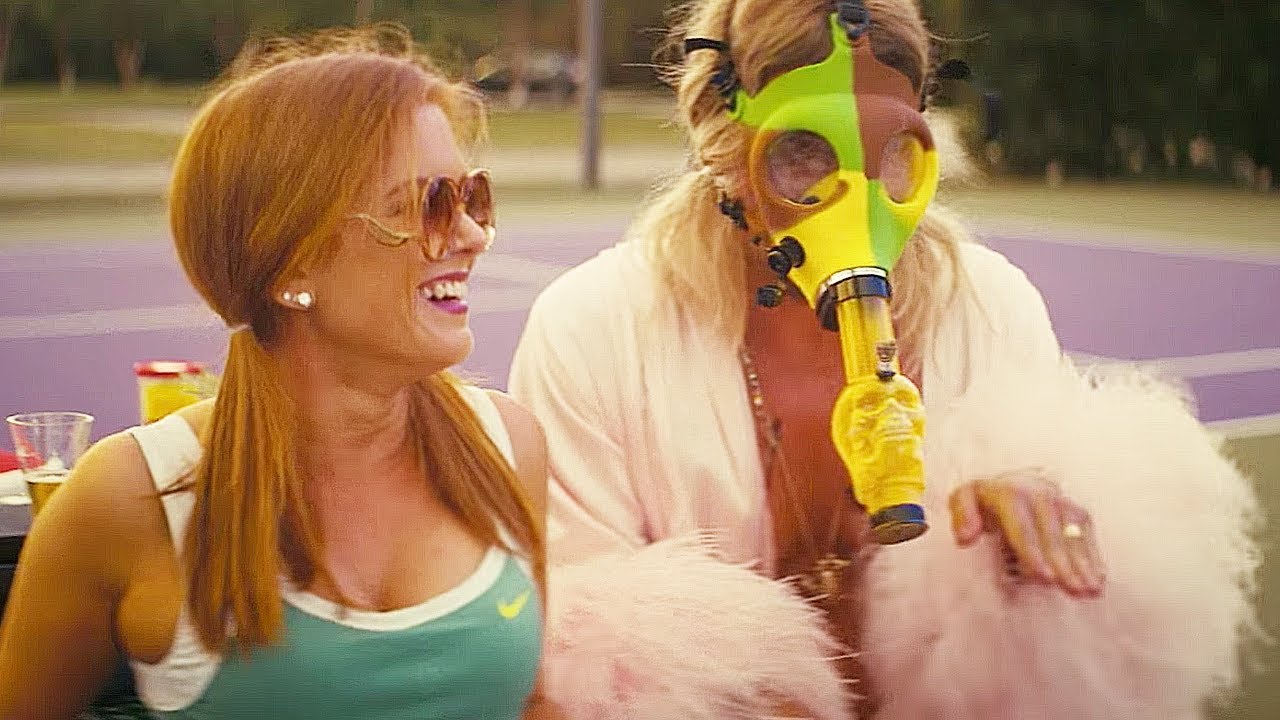
Writer/director Harmony Korine took his time following up his decadent 2012 cult hit Spring Breakers with this, the ultimate shaggy-dog saga, The Beach Bum. Matthew McConaughey is perfect in a role he seems born to play, as the bedraggled beat poet Moondog, a Dude-like layabout, sophisticated in women’s dress and fanny pack, reciting poems that in real-life were penned by the late great Richard Brautigan.
Moondog, a South Florida eccentric, once famous for his verse, now adrift around his beachside town’s many places of ill-repute, smoking weed, guzzling booze, and bedding beautiful women, after all “that’s what feeds the juices up here in my nugget, man.”
Aided by a feel-good soundtrack, fully envisaged by cinematographer Benoît Debie, who makes even Florida’s seediest spots a deliriously colorful trip, The Beach Bum wants you to feel the hedonistic highs along with Moondog. Even when our affable stoner appears browbeaten or his misadventures veer to the grimly picaresque, Korine wants you to feel bliss and boundless wonder.
Us

Creepy, funny, and absolutely thrilling, Jordan Peele’s Us stars a riveting Lupita Nyong’o as Adelaide Wilson, a woman recovering from a childhood trauma who retreats with her husband (Winston Duke) and two kids to the beachfront home where she grew up.
Adelaide becomes increasingly concerned by odd coincidences and strange omens as her darkest fears actualize when four shadow-obscured strangers descend upon their home, instigating the Wilsons into a fight-or-flight struggle.
And what’s even odder is that the strangers appear to be the Wilsons’ doppelgängers, and before you can say “dead ringers” shit gets shockingly real.
An artful exploitation picture, Us is also interested in exploring the history of oppression in America, and while it plays with pop culture, Peele trots out a vibrant discussion on class, privilege, and race, that you didn’t even realize you were having until you pull back from it in absolute awe.
In Fabric
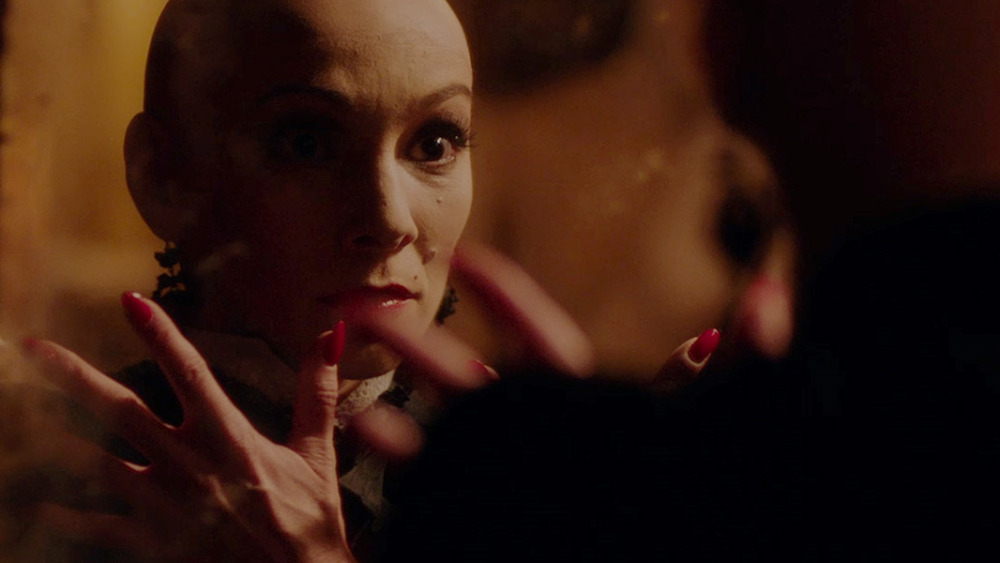
This ulta-stylish deference to Euro-horror, the fourth film from sly English writer-director Peter Strickland is his most outlandish, over-the-top, and batshit brilliant coup de cinema yet. In Fabric ostensibly tells the tale of a cursed killer dress and the ill-starred humans in helpless orbit around it.
When overlooked and underappreciated single mom Sheila (Marianne Jean-Baptiste) braves the bustling winter sales season at a literally hellish department store, an eccentric and rather spectral saleswoman Miss Luckmoore (Fatma Mohamed) entices her into purchasing a voodooed garment. Unsuspecting, Sheila’s fate is sealed, and she won’t be the first, nor the last, to fall under the dress’s strange and savage spell.
As a meticulous madness descends,so does Strickland’s uncanny knack for displaying tactile pleasures, visual responses, and barbed perceptions of consumerism and the occult.
Tim Gane’s score perfectly suits the fetishistic adulations to the psychedelic sex-horror and near-maudlin melodrama of Jesús Franco and Jean Rollin. And there’s enough blood-curdling shrills to conjure Dario Argento and David Lynch to the table, but Strickland’s bizarro mashup of flagrant psychedelia, giallo, midnight movies, and softcore erotica still makes him an absolute original, as imaginative and resolute as they come.
Strickland’s definitely an acquired taste, but for cineastes in search of surreal horror assembled with slavishly detailed fizz, deep fascination, and a sense of obscuro adventure, you won’t find a finer, freakier, meticulously embroidered nightmare anywhere else.
Starfish
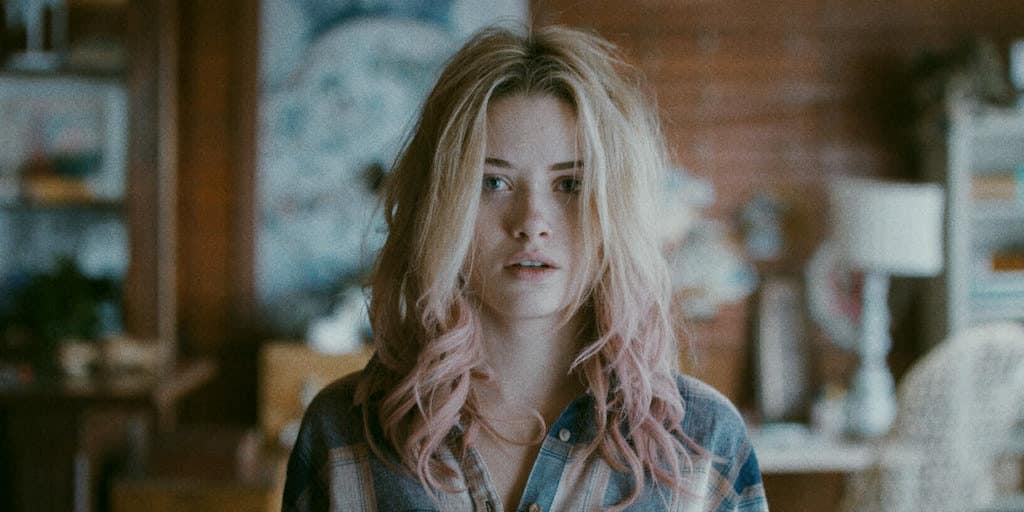
UK-born, LA-based director/composer/writer A.T. White makes a splash with his visionary debut feature, a monster-permeated, apocalyptic-set indie. This artful, horror-themed character study stars Virginia Gardner as Aubrey, a young woman mourning the unexpected death of her best friend, Grace.
Grieving is a personal and complicated journey, and Starfish does this potentially dour theme justice by exploring how self-condemnation can be a painful factor in saying goodbye. Holed up in Grace’s small town apartment, Aubrey soon discovers that while she was wracked with guilt something utterly cataclysmic –– and let’s just say it, Lovecraftian –– has happened to the world.
Thankfully for Aubrey, Grace has left a series of clandestine clues about the unfolding Armageddon via cassette tapes she’s stashed around town. “This Mixtape Will Save the World” reads one, and that’s enough to get Aubrey down the rabbithole in this melancholic and consistently imaginative little movie.
Non-Fiction
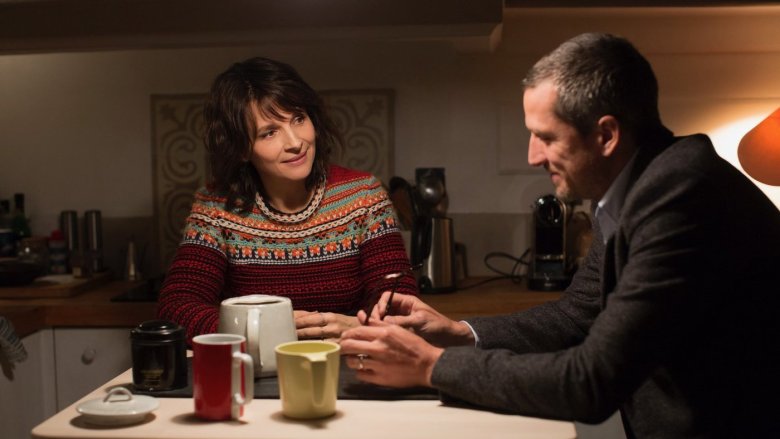
Olivier Assayas’s 12th film, non-Fiction, is a comedy of errors and relationships that reteams the director with his occasional muse Juliette Binoche.
Selena (Binoche) is a successful actress wed to Alain (Guillaume Canet) a publisher who’s too stressed-out for his own good. Sadly for Alain, Selena’s grown bored with him and when Leonard (Vincent Macaigne) and his wife Valerie (Nora Hamzawi) appear on the scene –– Leonard’s a very demanding novelis that Alain must deal with –– a very verbose comedy of manners materializes.
As quirky as Assayas’s finest films, Non-Fiction packs visual flair and verbal brio. For fans of razor-sharp dialogue and clear-sighted conversation à la Linklater, don’t miss this fine French confection.
Shadow
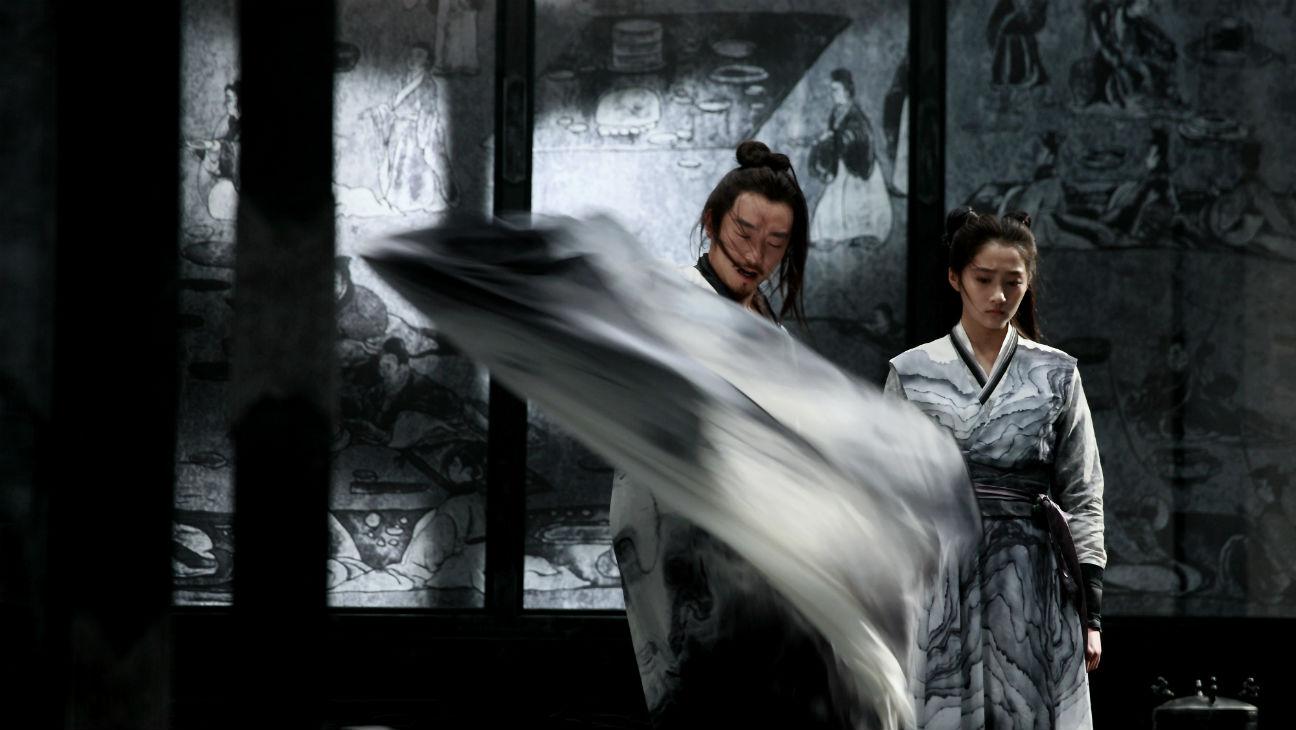
Visionary filmmaker Zhang Yimou is back, and as always a sensory spectacle is guaranteed. Shadow is a period piece set during China’s Three Kingdoms era (AD 220-280), and pairs palace chicanery with amazing martial arts.
The plot is an elaborate and convoluted affair pinned by an impressive dual performance from Chao Deng as both the cunning military leader Commander and his “shadow” the heroic Jing, with the Commander’s wife, Madam Yu (Li Sun) caught in the middle.
As a “shadow”, Jing is a formidably conditioned and trained double for the Commander, so convincing that even the king (Zheng Kai) cannot tell them apart.
Rendered almost entirely in mist and rain, this is a large-scale epic of engaging and occasionally brutal elegance. The bewitching harmony of Shadow’s many compositions, best represented by the yin and yang pattern at the film’s center –– and the film’s near total black-and-white flush –– give Shadow its best stab at seduction. As far as style over substance goes, it’s elegant eye-candy.
Brightburn
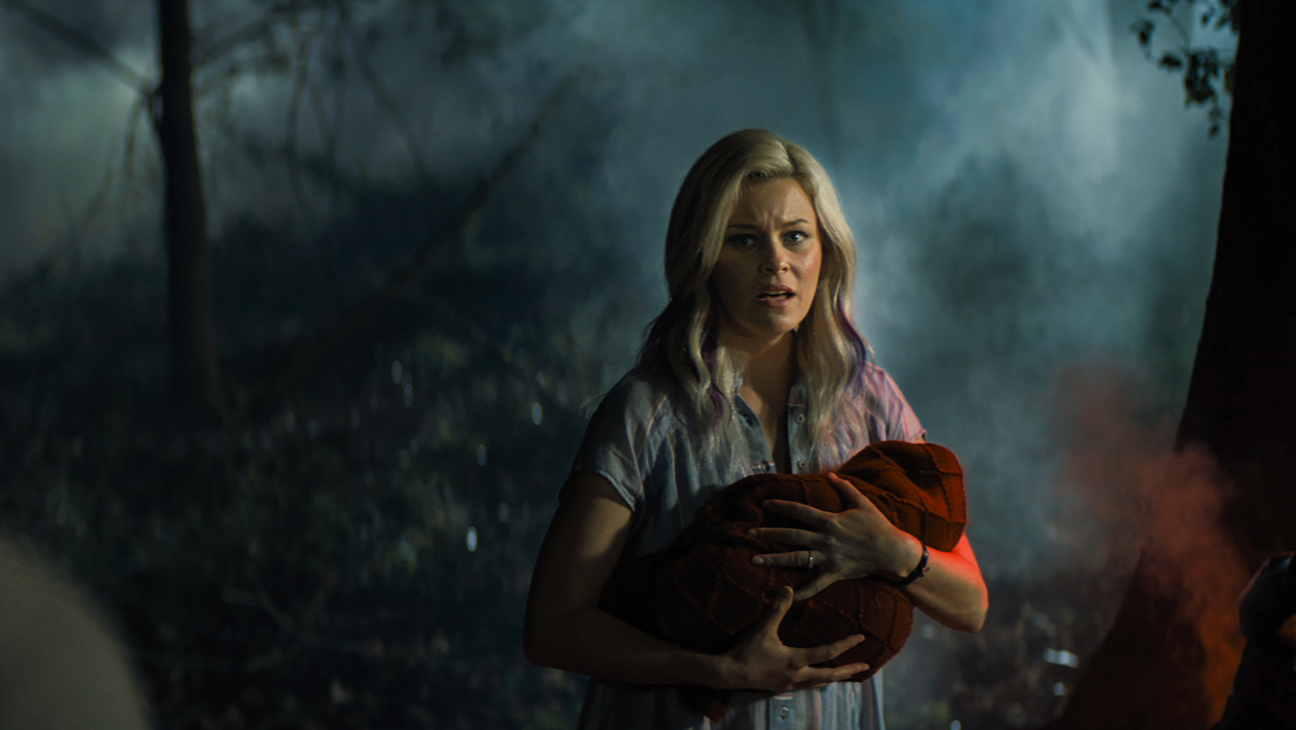
This fast-paced genre entry from producer James Gunn and director David Yarovesky takes a nasty nosedive into rather unexplored waters in the form of superhero horror.
Working with an inspired screenplay from Brian and Mark Gunn (two of James’ prolific brothers), Brightburn reimagines elements from the oft-told Superman origin story that posits the question: what if a child from another world were to crash-land on Earth and be raised amongst us? Only where Clark Kent became a hero to mankind, Brandon Breyer (Jackson Dunn) has much more sinister intentions.
Despite the loving and altruistic efforts of Brandon’s human mom (Elizabeth Banks) and dad (David Denman), once his superpowers start to kick in, he terrorizes his small town in the most murderous means imaginable. The lower-jaw trauma and eyeball injuries so graphically displayed herein will linger long in the memory of even the most jaded and scrupulous gorehounds. Brightburn works as an effective digression and subversion of superhero tropes, making for an unforgettable freakout.
All the Gods in the Sky
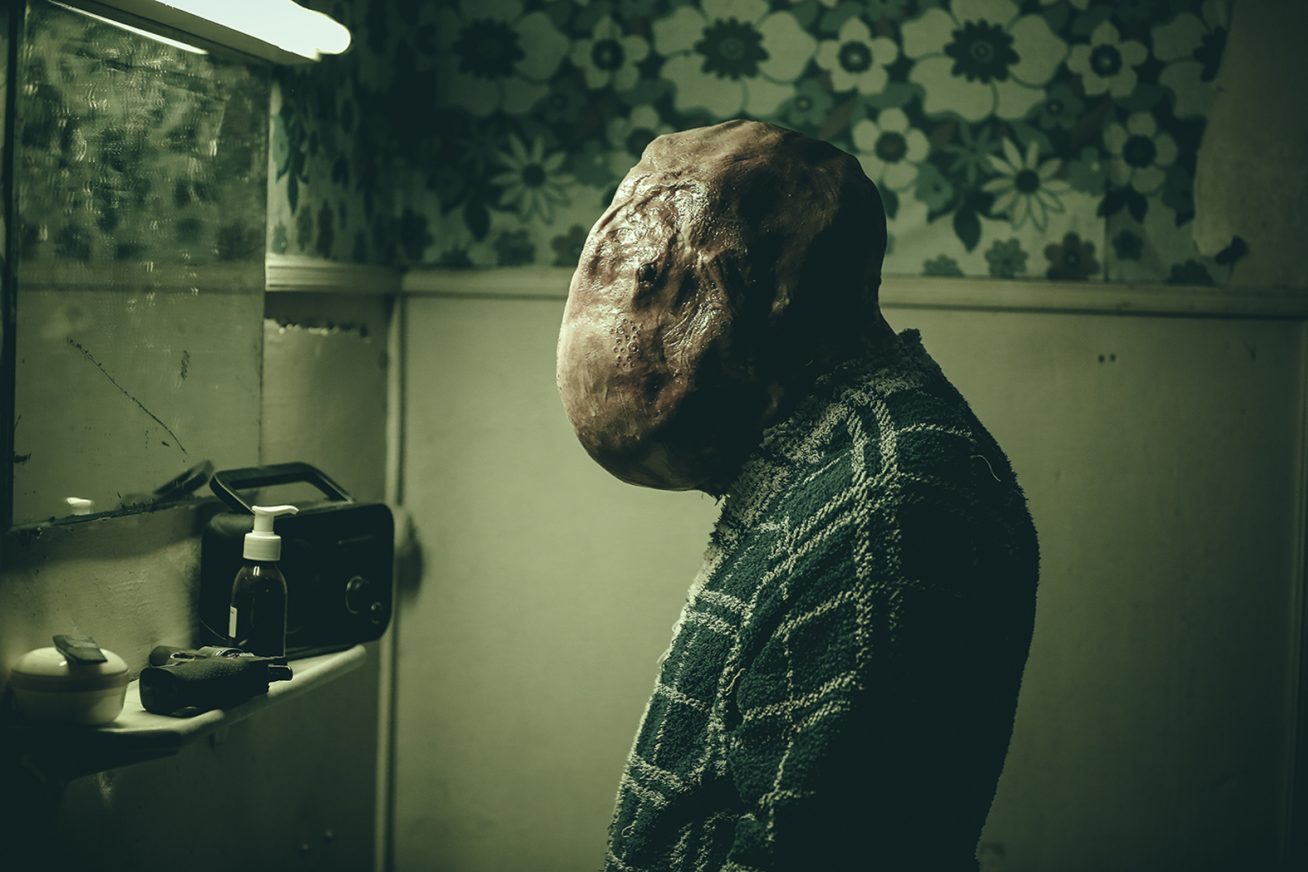
Billed as “the debut feature from French madman Quarxx” it’s apparent from All the Gods in the Sky’s very first scene that it’s a visionary inauguration from an artist possessing both vision and craft, not to mention a subversive and transgressive gradient perfect for a midnight movie experience.
Simon (Sebastian Barrio) is a middle-aged man living in a dilapidated old farmhouse who’s wracked with intense guilt over a childhood accident that left his younger sister Estelle (Melanie Gaydos) severely disabled. Simon is on a slow and steady descent into madness as he cares for Estelle, all the while invoking ominous extraterrestrial intervention.
If you enjoy sci-fi fantasy, and fairy tale-like storytelling balanced by relatable yet forbidding human incident, this gobsmacking little picture might just blow you away.
The Dead Don’t Die

At first it seems an odd fit that American indie filmmaking legend Jim Jarmusch should mix and mingle with zombies, but if you look closer at his filmography his many genre diversions jump out at you. He’s done road movies aplenty (Stranger Than Paradise and Broken Flowers being only two examples), an acid-western (Dead Man), a hitman/samurai flick (Ghost Dog), and a vampire romance (Only Lovers Left Alive) amongst his most admired films. So maybe making a multi-protagonist horror comedy isn’t that out of the blue after all.
Set in the quaint town of Centerville, The Dead Don’t Die spans a few days during an undead uprising that will herald the end of man. And our guides during the final days are drawn from the filmmaker’s repertoire; Steve Buscemi, Adam Driver, Bill Murray, Iggy Pop, RZA, Tilda Swinton, and Tom Waits amongst them.
Non-fans may well be alienated by how these characters rather nebbishy accept their lot; cops Cliff (Murray) and Ronnie (Driver) shrug and carry on their duties as their community is overrun with zombies. It’s only police woman Mindy (Chlöe Sevigny) who seems to reel in appropriate terror as news reports underscore that severity of it all.
Rarely does the end of times land with such eccentric ruefulness and whimsy. Sure, there are hit-and-miss moments, and not all the satire is shrewd, but isn’t the sight of Carol Kane as a chardonnay-obsessed ghoul worth the ticket price alone?
Aniara
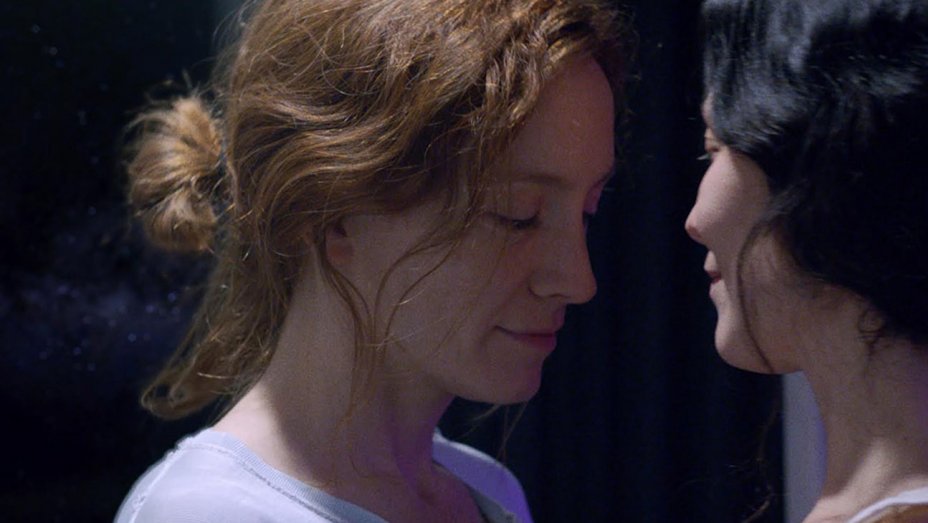
Adapted from Swedish writer Harry Martinson’s epic 1956 poem, directors Pella Kågerman and Hugo Lilja offer one of the year’s most visionary and melancholic sci-fi films with Aniara.
Comparisons to Douglas Trumbull’s 1972 environmental-themed post-apocalyptic SF film Silent Running and William Golding’s 1954 dystopian literary classic “Lord of the Flies” are apt in this daunting and ambitious achievement.
Mimaroben (Emelie Jonsson) is part of a group of pilgrims leaving our dying earth for the Mars frontier when their ark-like spacecraft is knocked off course and left paralyzed without fuel. Slowly coming to terms with their forlorn lot, the passengers start to explore extreme means of coping, such as spending unhealthy amounts of time in virtual realms and joining cults that partake in depraved rituals. As fanaticism, hedonism, and cruel totalitarianism take over, Mimaroben fights to retain a sense of prevalence, even attempting to start a family and find love.
Audaciously spanning some 5,981,407 years, Aniara proves to be that rare thing that serious sci-fi aspires to be: both deeply philosophical and utterly fantastical.
Hellboy
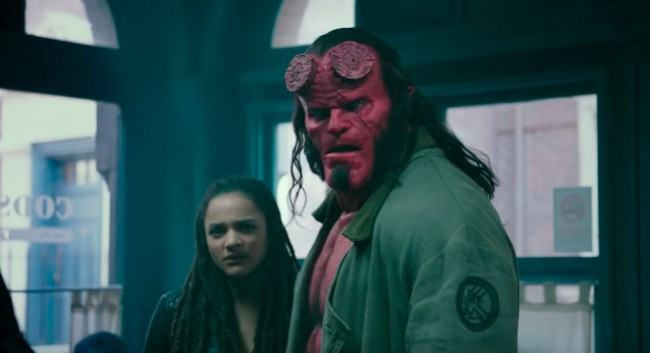
No doubt people will scoff at the inclusion of Neil Marshall’s Hellboy reboot on any list purporting to be a “best of” anything. I’m here to tell you that the critics and the public got it wrong when they brushed it aside and treated it with contempt. This Hellboy iteration, the third live-action adaptation of Mike Mignola’s comic book hero, is a diabolical delight.
David Harbour is fine as our eponymous half-demon, a dude who files his horns so he can wear hats, and the film draws on elements from some of Mignola’s strongest Hellboy tales (“Darkness Calls” and “The Wild Hunt” in particular), delivering us nothing but a gory good time.
Hellboy’s an old school 1980s/90s-style monster movie full of early Sam Raimi/Peter Jackson-era splatter that plays out like Evil Dead II meets Labyrinth and now I ask you, how the shit does that not sound completely and totally awesome?
The Art of Self-Defense
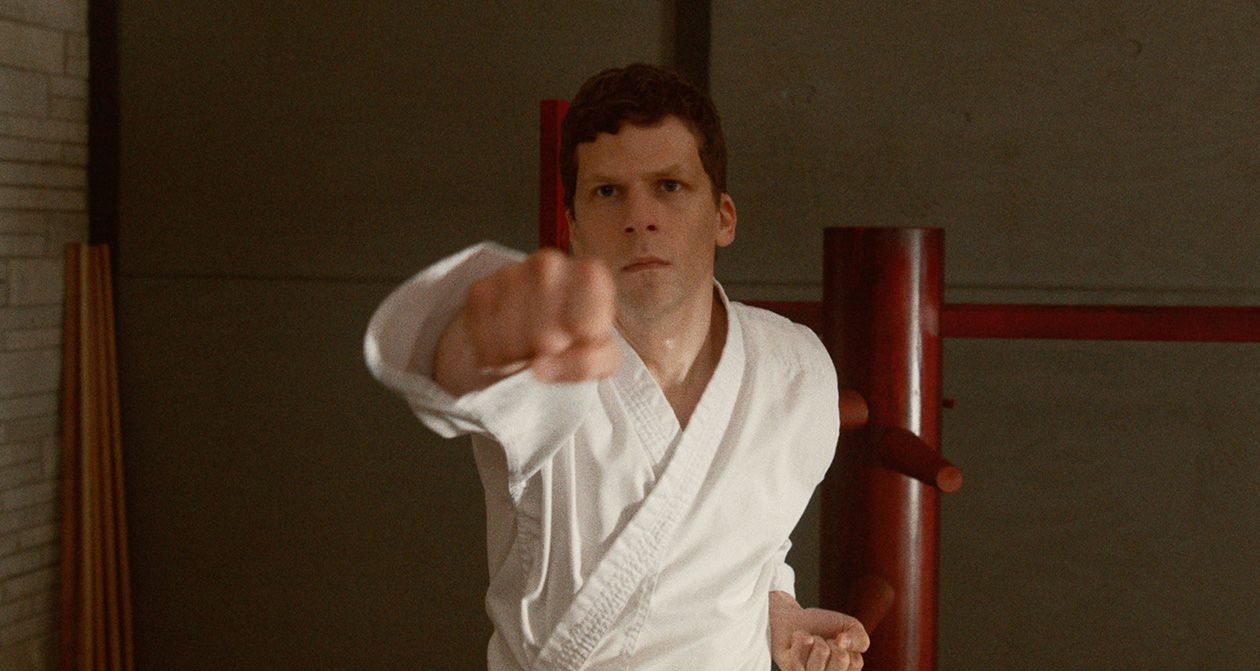
Writer-director Riley Stearns’ remarkably assured second feature isn’t just a rattling character study, it’s also an uproarious satire of toxic masculinity in modern times. Jesse Eisenberg’s Casey is a milquetoast bookkeeper and dachshund-lover who, after a violent nighttime attack from motorcycle thugs, finds himself signing up at a karate studio in hopes of learning how to better protect himself.
Soon Casey finds himself under the sway of Sensei (Alessandro Nivola), as well as being captivated by Anna (Imogen Poots), a stoic karate instructor. Casey’s unsure trajectory takes on shades of Fight Club as Sensei ushers him into a dark fraternity. As The Art of Self-Defense deepens, so to does the offbeat and utterly enjoyable inanity of it all (“He’s a dachshund you son-of-a-bitch!!”).
Audacious and uproarious, Stearns sets his sights on fist-pumping dudebros endlessly seeking antagonistic one-upmanship, on soulless workplace tedium and on the incel-like radicalization close to America’s repute in these Trump-addled times. This is a pull-no-punches jet-black comedy where all the crude quips and brute antics land with precision.
John Wick: Chapter 3 – Parabellum
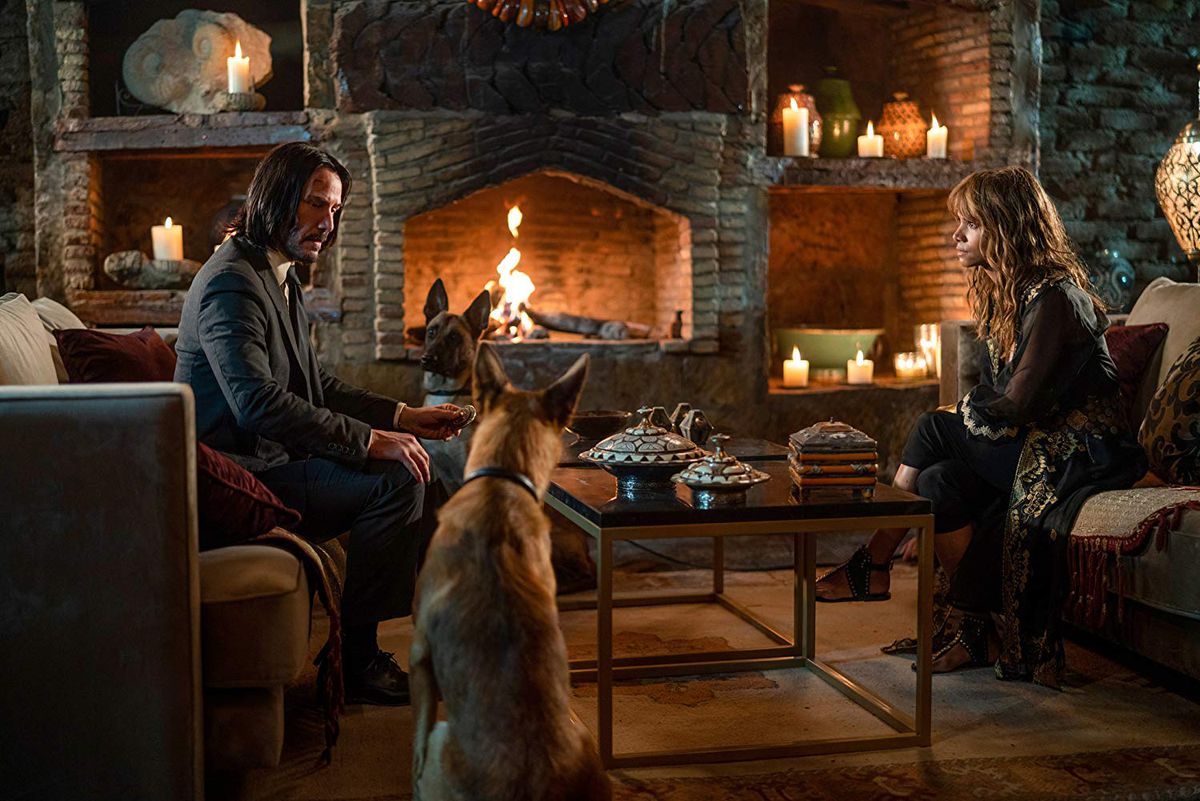
Intense and ultra-violent action abounds in the third installment of the John Wick neo-noir action thriller series. Chapter 3 finds ex-hitman and dog-avenger John Wick (Keanu Reeves, perhaps the purest human being on the planet) stripped of the international assassin’s guild protective services and with a lofty $14 million bounty on his head.
But don’t worry, escaping the blood-soaked neon-lit streets of New York as the world’s most skilled and ruthless killers are after him is par for the course. Before this chapter’s done you’ll see some stunning equestrian vs. motorcycle mayhem, senses-shattering knife-fighting, brutal and balletic dog-attacks, and more. Rarely is carnage so elegantly choreographed, and Parabellum offers the best action set-pieces of the series so far.
Pop cinema this exciting and entertaining while also being brutal and bloodthirsty will have you paraphrasing Keanu from his other beloved franchise: “Whoa!”









No comments: